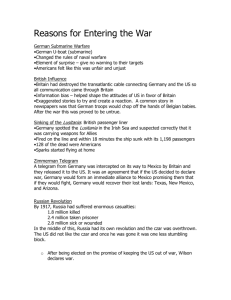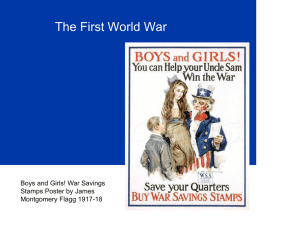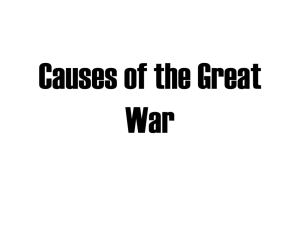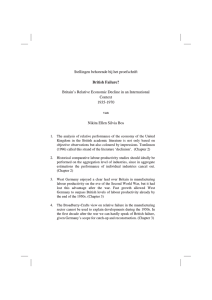World War I: Analyzing Events and Attitudes
advertisement
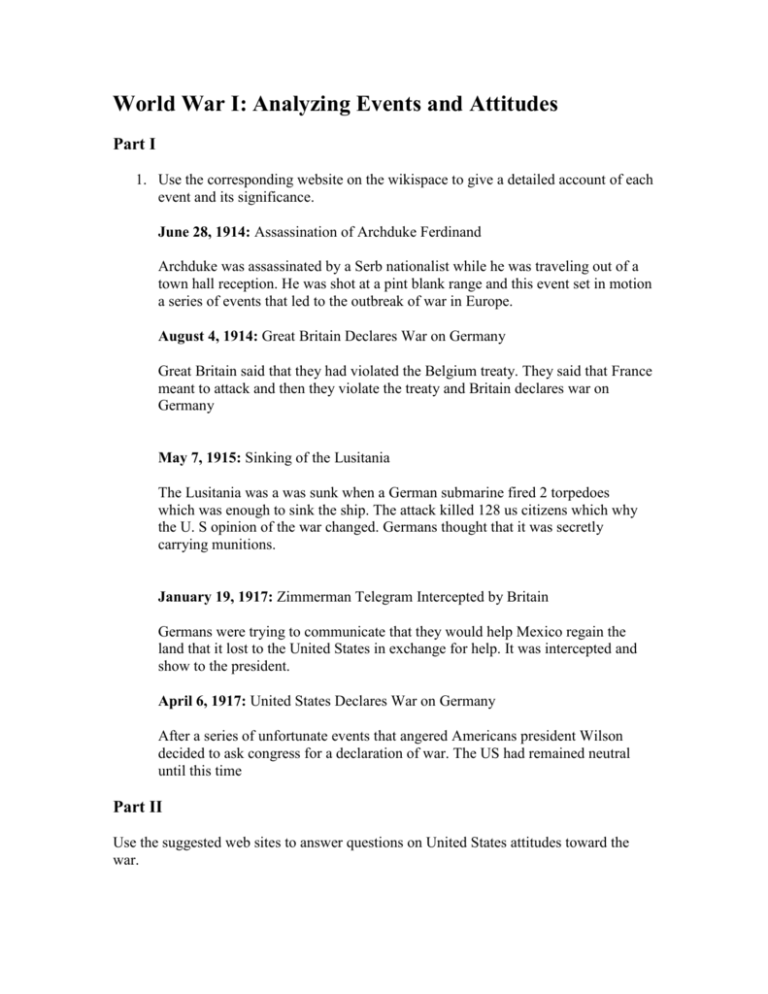
World War I: Analyzing Events and Attitudes Part I 1. Use the corresponding website on the wikispace to give a detailed account of each event and its significance. June 28, 1914: Assassination of Archduke Ferdinand Archduke was assassinated by a Serb nationalist while he was traveling out of a town hall reception. He was shot at a pint blank range and this event set in motion a series of events that led to the outbreak of war in Europe. August 4, 1914: Great Britain Declares War on Germany Great Britain said that they had violated the Belgium treaty. They said that France meant to attack and then they violate the treaty and Britain declares war on Germany May 7, 1915: Sinking of the Lusitania The Lusitania was a was sunk when a German submarine fired 2 torpedoes which was enough to sink the ship. The attack killed 128 us citizens which why the U. S opinion of the war changed. Germans thought that it was secretly carrying munitions. January 19, 1917: Zimmerman Telegram Intercepted by Britain Germans were trying to communicate that they would help Mexico regain the land that it lost to the United States in exchange for help. It was intercepted and show to the president. April 6, 1917: United States Declares War on Germany After a series of unfortunate events that angered Americans president Wilson decided to ask congress for a declaration of war. The US had remained neutral until this time Part II Use the suggested web sites to answer questions on United States attitudes toward the war. 1. What was the American reaction to the sinking of the Lusitania? What were the arguments for blaming Germany? What were the arguments for blaming Britain? The Americans were angered and propaganda began. They said Britain wanted it sunk to get Americans. Germans were using unrestricted submarine warfare and the captain should have seen that it was a passenger ship. 2. In the article "War Is 'a Blessing, Not a Curse'," what precedents in American history are cited for the United States joining the war? 3. What does Senator Norris mean when he says, "It is now demanded that the American citizens shall be used as insurance policies to guarantee the safe delivery of munitions of war..."? How does he suggest the U.S. could have avoided entry into the war? 4. Look at the U.S. propaganda posters from World War I. What emotions are conveyed? Which one has the most powerful message?
